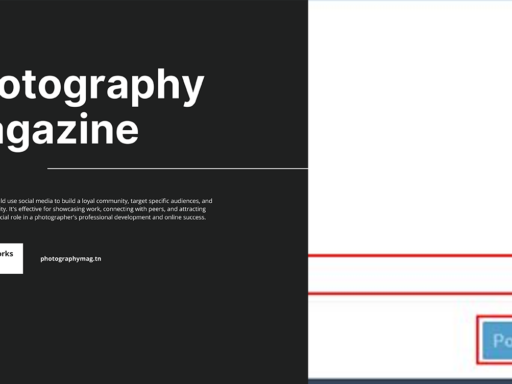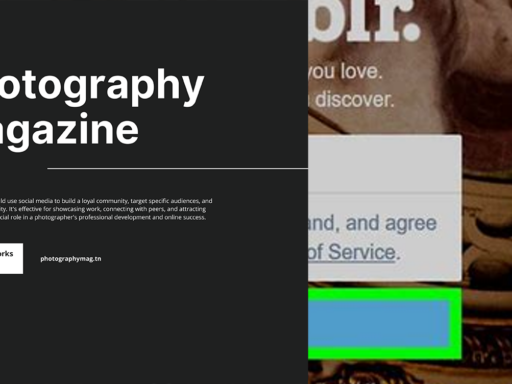When Did Tumblr Kick NSFW Content to the Curb?
Ah, Tumblr—the whimsical wonderland of GIFs, fan art, and, let’s not forget, the wild and wacky corner of the internet where NSFW content was once as common as cat videos on YouTube. However, all fairy tales have an end, and for Tumblr, that end came crashing down in December 2018. Hold onto your emojis because we’re diving into the *why’s* and *how’s* of this dramatic overhaul in Tumblr’s content policy.
What Sparked the NSFW Exodus?
Picture this: You’re scrolling through your Tumblr feed, all is well, and then *bam*, controversy hits harder than a rogue cat meme. It turned out that Tumblr’s filters had a slight hiccup (read: catastrophic failure) when they failed to catch some rather illicit content floating around. Yup, that’s right—child pornography, of all things, found its way under Tumblr’s radar. This serious blunder led to the temporary removal of the app from the iOS App Store. For a platform that prides itself on creativity and community, this was a dreadful blunder.
And Then Came the Ban…
In a bid to save face and restore its moral compass, Tumblr threw up its hands and decided that enough was enough. On December 17, 2018, the platform banned all NSFW content—putting a tight leash on anything that might make ol’ Aunt Mildred clutch her pearls. Users across the website were left reeling, many saying goodbye to their favorite blogs filled with adult content and adult conversations. In the chaos, tons of content disappeared faster than you can say “adulting.” For many, it felt like a gut punch. Let’s be real: nothing quite says “I’m an adult” like an ill-timed sassy animated GIF at 2 AM.
The Aftermath: A Sad Tale of Stagnation
After the ban, Tumblr’s web traffic took a nosedive—a whopping 30% drop in visitors. That’s like waking up to find out your favorite coffee shop decided to switch to herbal tea. Yikes! As the site struggled to find its footing, almost like a toddler learning to walk, it lost significant steam in attracting a diverse audience.
Users who loved that eclectic mix of creativity also packed their bags to explore other social platforms that would let them indulge in unrestricted free expression. Sites like Twitter or even Reddit became prime destinations for the adult crowd, luring them in with the promise of *freedom*. You can imagine Tumblr—and some former users—biting their nails, wondering if they had just traded in their funky, neon-colored dance floor for a dull waiting room.
The Future of Tumblr: What’s Going On?
Fast forward to today, and Tumblr seems to still grapple with its identity crisis. It has tried to pivot back towards focusing on creativity, inspiration, and community connection in a wholesome light. But let’s face it: you can’t erase the old. The people who loved the *spice* of Tumblr still reminisce about the days of NSFW posts and *ahem* more adult discussions. What’s a platform to do? It’s like a teen trying to shake off their embarrassing high school phase!
The Community’s Reaction: A Love-Hate Affair
So how did users respond to the NSFW apocalypse? Well, it was a mixed bag of total devastation and restrained optimism. Many loyal users felt their definitive creative voice fell on deaf ears. The memes raged like wildfire: users flooded platforms with posts highlighting their frustrations, even gathering in secret groups and forums discussing how to best navigate their new, sanitized Tumblr experience. But amidst all the chaos, you could find a sprinkle of optimism. Some creative souls took this as a challenge, switching gears and discovering new ways to express their art within the guidelines—even if their posts were now filled with less… shall we say, *raunchy vibes*.
The Financial Hit: Oh, How the Mighty Have Fallen
Tumblr’s decision didn’t just cause an emotional aftershock among its user base; it also dealt a major blow to its revenue model. With countless creators and adult blogs shuttered, ad revenue took a beating. Brands typically attracted by the lively, edgy community hesitated to invest in a now comparatively tame platform. Imagine selling ice cream in an icebox—no thank you. It was as if Tumblr had single-handedly decided to rebrand itself as an elementary school, much to the chagrin of its older user demographic.
Lessons Learned: A Cautionary Tale?
While it might seem easy to throw blame around, Tumblr’s plight serves as a rich case study in the delicate balance of content moderation versus community expression. The struggle is real, folks. Moderation policies may have started with good intentions, aiming to create a safe space for all users, but they often miss the *broad strokes* of how online communities thrive. Finding that elusive midpoint between safety and creative expression remains a challenge for all platforms navigating these waters today.
Did Tumblr Bounce Back? The Verdict
Now, you might still be wondering if Tumblr has picked itself back up since the infamous NSFW ban. Short answer? It’s struggling but holding on. Long answer? Think of it as a soap opera—the drama keeps dragging on, filled with twists, turns, and occasional cliffhangers about feature updates. Stepping away from its identity has led to stagnation; the once-colorful community has faded to—dare I say—pastels. New management promises changes, but will they be enough to lure back those wayward souls searching for the next big creative outlet?
Conclusion: What Lies Ahead for the Tumblrs of the World?
If there’s a silver lining, it’s this: Tumblr’s situation prompts a thought-provoking discussion on content moderation in our ever-evolving digital landscape. The platform once talked about *freedom of expression.* Now, it finds itself in a peculiar dance of staying relevant while balancing user safety and creativity. Whether you’re a former user still shaking your fist at the ban or a die-hard Tumblr fan navigating the newer norms—this saga isn’t over.
Will Tumblr ever return to its glory days? Only time will tell. But one cold reality is clear: with the disappearance of NSFW, Tumblr has taken one bold step away from the snazzy persona it once cultivated. So, buckle up, folks, the ride isn’t over just yet!





